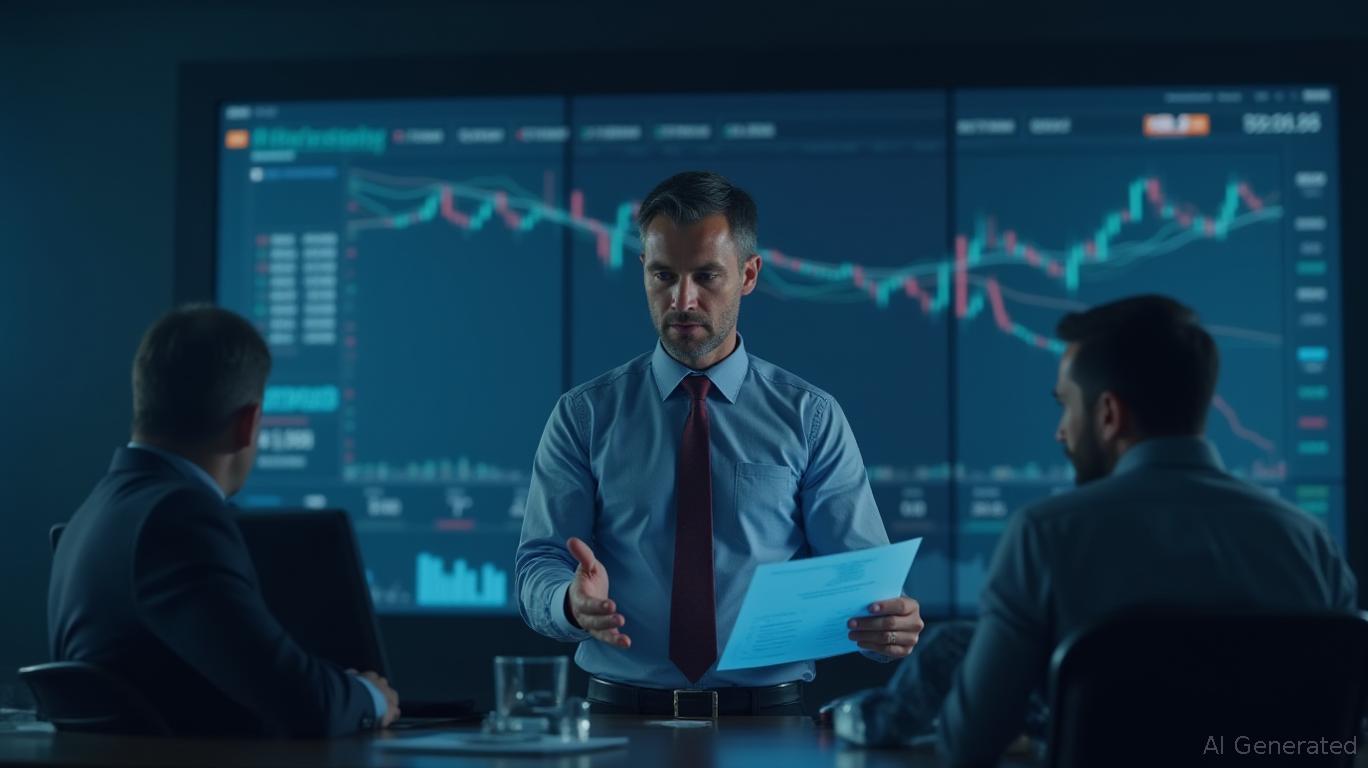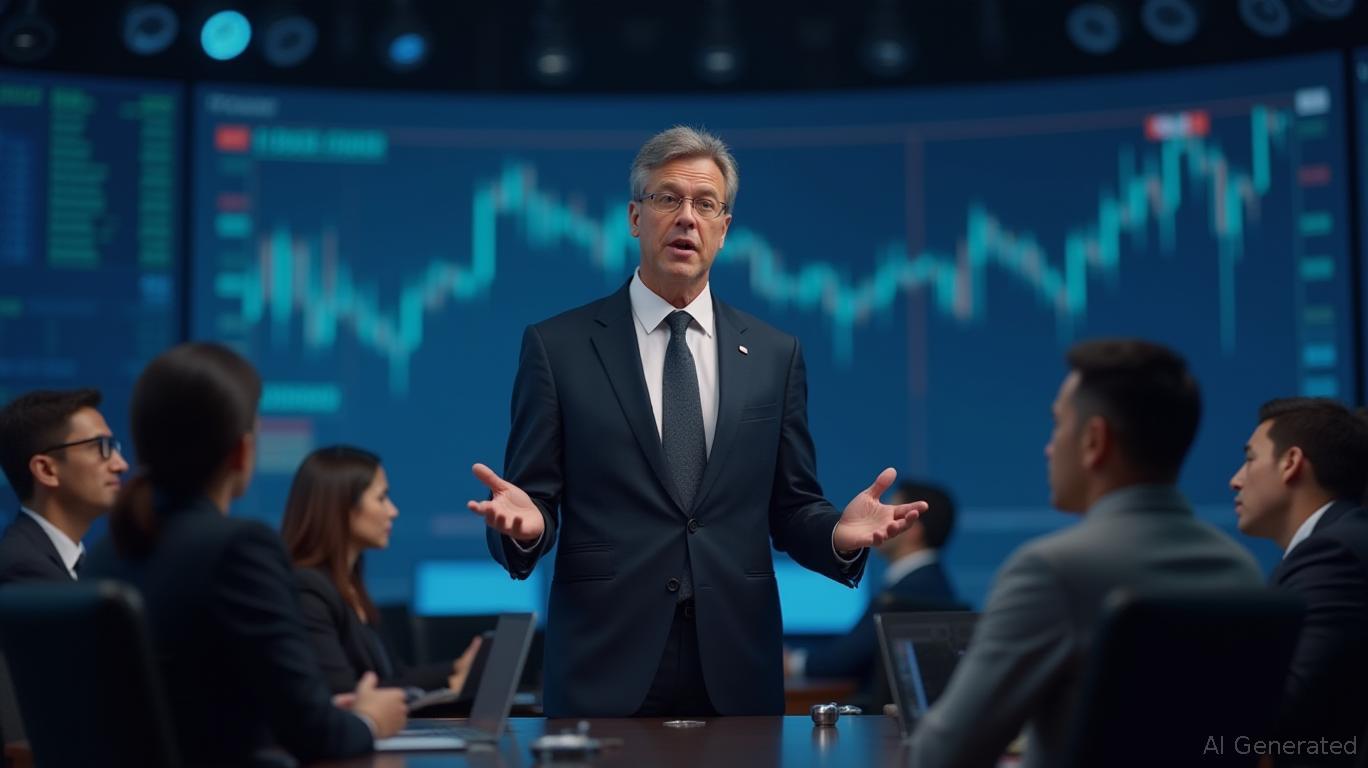JP Morgan CEO Reverses Stance on Cryptocurrency
- Main event, leadership changes, market impact, financial shifts, or expert insights.
- Dimon acknowledges crypto legitimacy, shifting market perception.
- Blockchain adoption highlights institutional evolution in finance.
Jamie Dimon’s stance on cryptocurrencies evolved from calling Bitcoin “a fraud” in 2017 to acknowledging the legitimacy of blockchain technology. His reversal reflects the broader trend of institutional acceptance, despite initial skepticism from traditional finance leaders.
Jamie Dimon, CEO of JPMorgan Chase, publicly reversed his previous criticism of cryptocurrency, initially labeling Bitcoin “a fraud” in 2017. More recently, he acknowledged the legitimacy of crypto and blockchain technology on various platforms.
Dimon’s change in stance highlights the evolving acceptance of cryptocurrency by major financial institutions, reflecting broader market trends and shifting perceptions among industry leaders.
Jamie Dimon’s initial skepticism toward Bitcoin, highlighted by his 2017 comments, has shifted as he now acknowledges the potential of blockchain technology. JPMorgan Chase’s engagement in blockchain projects such as JPM Coin illustrates institutional acceptance.
The recognition from Dimon signals potential wider acceptance, impacting both industry perceptions and market sentiments . Bitcoin, once dismissed, benefits from such legitimacy, easing its integration into traditional financial systems.
Bitcoin’s price volatility experienced a ripple effect from Dimon’s past comments, emphasizing was had a profound effect on investor sentiment. The acknowledgment of crypto’s legitimacy further validates the industry’s potential and counters prior skepticism. Jamie Dimon reflected on his past views stating, “I regret making those comments. The blockchain is real. You can have crypto yen and dollars and stuff like that.”
Insights suggest institutional acknowledgment may bolster blockchain innovation and legalization, altering financial structures. Historical trends indicate increased adoption post-skeptic reversals, with regulatory viability potentially amplifying technological advancements within financial systems.
Disclaimer: The content of this article solely reflects the author's opinion and does not represent the platform in any capacity. This article is not intended to serve as a reference for making investment decisions.
You may also like
Breaking News
Bitcoin News Today: Bitcoin’s Decline Prompts MicroStrategy to Reevaluate Its Financial Approach
- MicroStrategy added 397 BTC ($45.6M) via stock sales, holding 641,205 BTC valued at $69B as of Nov 3, 2025. - Q3 2025 net income surged to $2.8B from $3.9B unrealized BTC gains, but Bitcoin's $108K price drop triggered mNAV 1.04x threshold. - CEO Phong Le confirmed exploring Bitcoin derivatives to maintain dividends without equity dilution as mNAV nears parity. - Company projects $34B operating income in 2025 assuming $150K BTC average price, despite analysts warning of leverage risks.

Stride commits $500 million to share repurchases, wagering on a rebound amid impending legal challenges
- Stride Inc. announced a $500M stock buyback to boost investor confidence amid legal probes and a 54% single-day stock plunge linked to tech failures and enrollment shortfalls. - Investigations by multiple law firms allege fraud over inflated enrollment data, poor platform upgrades, and misleading operational disclosures impacting 10,000–15,000 lost enrollments. - Despite Q1 revenue outperformance, revised 5% 2026 growth guidance—far below historical 19%—and rising tech costs raise doubts about Stride's l

U.S. Approves UAE’s AI Initiative in $15 Billion Deal to Compete with International Competitors
- U.S. government approved Microsoft to export 60,400 advanced Nvidia AI chips to UAE under a $15.2B partnership boosting the Gulf's AI infrastructure. - The deal includes $5.5B for AI/cloud infrastructure and $1.5B equity in UAE's G42, overcoming prior export control delays. - Microsoft secured licenses by meeting strict security requirements, aligning UAE's AI ambitions with U.S. efforts to counter Chinese tech influence. - The approval raised Nvidia shares and reinforced Washington's cautious yet collab
